 Due Process Rights
Due Process Rights
The freedoms found in the First Amendment to the Constitution are precious, but would be nothing without protections for people accused of a crime. Like the Writ of Habeas Corpus, found in Article 1, Section 9 of the Constitution, due process rights protect all of the other rights. In this slideshow you will learn more about your due process rights.
Select an image to display a larger view and image caption. View each image as often as you would like and take notes.
-
Due Process Rights
What would you do if you were walking a protest picket line today, and tomorrow you were picked up by law enforcement and put in jail? Would you call your lawyer? What would he do? He/she would get a Writ of Habeas Corpus and require the officials to prove that there is cause to hold you.
One of the most important due process rights is the right to a writ of Habeas Corpus. (Remember a Writ of Habeas Corpus is a court order to produce a prisoner in court to justify his detention.) It prevents arbitrary imprisonment and gives the accused the opportunity to know the charges against him/her. This historic writ was issued for Nathan Forrest a Confederate general in the Civil War who was later arrested after the war for his un-American activities.
Without Habeas Corpus, you do not really possess free speech. And without your other due process rights, you don’t have any of your other First Amendment rights either. You would be facing the might and power of the state, with all its resources, and without the ability to defend yourself, to call witnesses to speak for you, or even to question the witnesses against you.
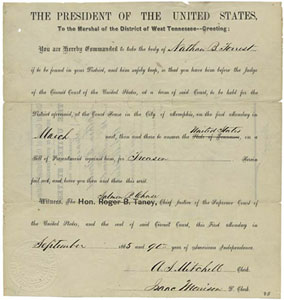
-

Substantive Due Process
Due process rights are categorized as procedural or substantive. These rights ensure that persons may not be deprived of life, liberty or property without due process of law. This means that both the content of the law may not deprive you of rights or property (substantive due process), nor may the procedures used deprive you of rights (procedural due process).
The Fifth Amendment prohibits government from depriving you of your property for public purposes without paying just compensation.
In Kelo v. City of New London, the city used the power of eminent domain (taking private property for public use) to seize private property to sell to private developers. The city said this use would increase revenues. For Kelo, this was a substantive due process issue. The Court did not agree. The court held that the city’s economic development plan served a public purpose and did not violate the Fifth Amendment.>
-
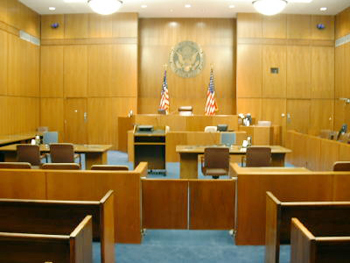
Procedural Due Process
Due process rights provide the assurance of keeping the government in check. Due process limits the conduct of law enforcement officers and the prosecution to protect the rights of the defendant in all contacts with the State.
It is the obligation of government to protect the life, liberty and property of its citizen from others in the society. Procedural due process rights are intended to protect the accused from overly zealous government.
The American legal system is an adversarial system in which the two sides, government and the accused, are pitted against each other with the goal of finding the truth. It is competitive in nature, and the theory is that each side will bring out all relevant facts to ensure that the truth is made known. Inherent in this system is the risk that competitiveness will lead to excessive zeal.
-

The Fourth Amendment
The Fourth Amendment protects against unreasonable searches and seizures, and the Article makes it clear what is considered reasonable. Notice that the Fourth Amendment assumes that a search will be accompanied by a warrant and that obtaining a search warrant requires specific evidence and probabilities.
The officer seeking a warrant must disclose under oath, the reasons for his "probable cause" to search the place specified in the warrant. The officer must list the items to be seized, and his search is restricted to the information on the warrant.
Since the Fourth Amendment requires an officer to obtain a warrant, a search without a warrant will be presumed invalid. The burden will be on the officer to show that a warrantless search was valid. Some warrantless searches may be upheld: a search in hot pursuit, a search which accompanies an arrest and things discovered in plain view. What happens to evidence seized in violation of the Fourth Amendment?
In 1914, in Weeks v. the U.S. the Court established the exclusionary rule in federal cases. Any evidence obtained in violation of the defendant’s rights may not be used against the accused. The Court has held that the exclusionary rule is the best way to ensure that law officers take all legal steps to protect the rights of the accused. It was not until 1954 that the exclusionary rule was applied to the states in Mapp v. Ohio.
-

The Fifth Amendment
You have heard the phrase "I take the fifth" when someone doesn’t want to answer a question. That phrase comes from the Fifth Amendment and means that the accused cannot be required to take the stand against him nor forced to confess to a crime.
The Fifth Amendment contains many due process rights, the chief among them being the right not to incriminate oneself.
The Court has had to decide how this applies, and in what circumstances confessions are in violation of the Fifth Amendment. In Escobedo v. Illinois the Court required the presence of an attorney during questioning.
-

Miranda Warning
In Miranda v. Arizona the Court required law enforcement to notify a defendant of his rights, including the right to remain silent, and required an attorney in all contacts in which one is a suspect.
Typically when a suspect is arrested, officers will read him or her The Miranda warning: "You have the right to remain silent. Anything you say can and will be used against you in a court of law. You have the right to speak to an attorney and to have an attorney present during any questioning. If you cannot afford a lawyer, one will be provided for you at government expense."
During the 1980’s the Burger Court upheld the requirement, but did allow some exceptions, including a "public safety" exception. The Court has also ruled that it is not necessary to warn persons who are not suspects or who are not in custody.
The Miranda warnings have generally impacted the way the police conduct themselves during interrogations and arrests, and although the courts have continued to support the warnings, later courts have given police more latitude in questioning.
-
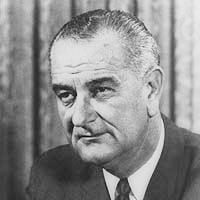
Right to an Attorney
The right to have an attorney appointed if a defendant cannot afford one was decided by the Court under Chief Justice Earl Warren. The Warren Court was responsible for many changes in the interpretation of "due process."
The case of Gideon v. Wainwright resulted in a major change in the legal system, since the state would thereafter be required to furnish counsel for most defendants.
-
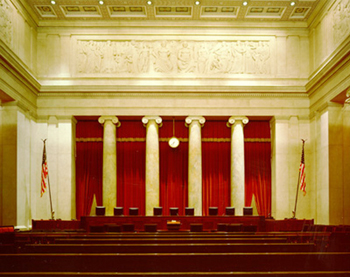
Government's Responsibility
The Eighth Amendment protects against cruel and unusual punishment and has been used by defendants to fight the death penalty. Death penalty appeals can go on for years, and the Court has upheld its application when fair procedures are in place.
Since the case of Sheppard v. Maxwell, many cases reach the Supreme Court on a writ of Habeas Corpus. Because death row inmates have filed multiple writ applications, thus delaying imposition of the sentence, the Court has recognized that this legal tactic has taken up much unwarranted Court time. In McKleskev v. Zant the Court required defendants to include all bases for the appeal in its request for the writ. "Saving some for a later appeal" is not permitted as a means to return to the Court with second, third or fourth applications for Habeas Corpus. Nevertheless, a person facing the death penalty may delay for upwards of twenty years before sentence is imposed.
-
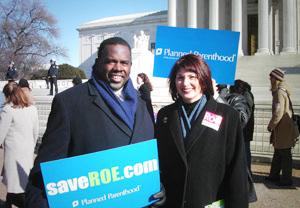
The Right to Privacy
The Ninth and Tenth Amendments to the Constitution are meant to signify that other rights not listed are retained by the people or by the states.
The Ninth and Fourteenth Amendments, along with the Third Amendment, prohibiting the quartering of troops, and the Fourth Amendment, prohibiting unreasonable searches, have been interpreted to guarantee the protection of privacy from federal and state action on individuals. It is this right to privacy that has led to some of the Supreme Court’s most controversial decisions, including its abortion decision.








